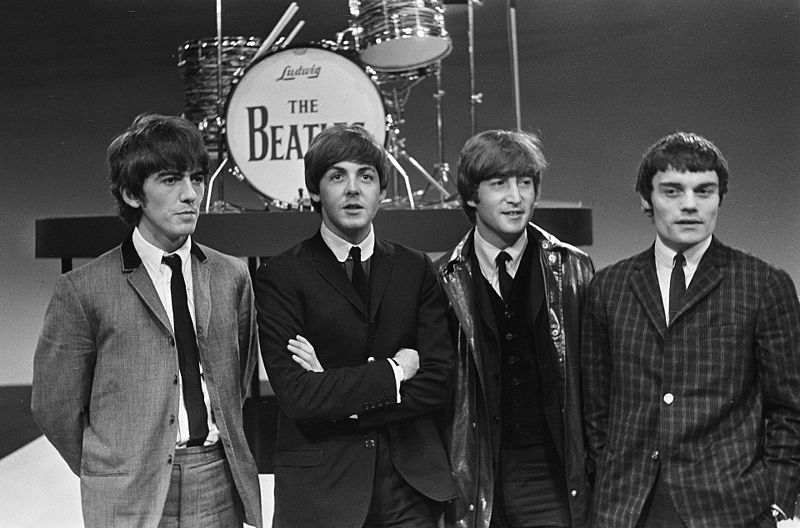|
Note: the information for this essay (at times I quoted directly from it) came from an excellent article on The Ultimate Classic Rock site. You can find the article by clicking here:
Every so often, my mind turns to Jimmie Nicol. I always wonder if his brief moment in history was a blessing, or a curse. Usually, when I give it some thought, my conclusion is that it was the latter. Nicol is a footnote in the history of The Beatles. On June 4rd, 1964, at the height of Beatlemania, the band was to embark on its first tour of Denmark, the Netherlands, Hong Kong, Australia and New Zealand. At a photo shoot the day before the tour was to begin, Ringo Starr collapsed. He was rushed to the hospital, and diagnosed with tonsillitis. This put Beatle manager Brian Epstein in terrible position. He had booked a slew of concert halls and sold thousands of tickets at that point, so simply cancelling the tour would have been a financial disaster. Faced with this prospect, he reluctantly approached the band about finding a substitute drummer. Though Paul McCartney and John Lennon agreed, George Harrison, fiercely loyal, was dead set against it. “If Ringo’s not part of the group, it’s not the Beatles. I don’t see why we should do it,” he said, and, according to producer George Martin, it took a great of persuasion by Epstein and Martin to convince George to go along with it. Jimmie Nicol, 24 at the time, had played with George Fame and The Blue Flames. He also played on singles by Colin Hicks and The Cabin Boys. Epstein was impressed by his drumming, and probably took into consideration that Nicol was just about the same size as Starr, and could therefore fit into his suits. After a six song audition, Nichol flew to Denmark, and was a Beatle. Ringo, meanwhile, sat in his hospital bed, feeling, as he said, as is no one loved him. He had, after all, replaced The Beatles’s original drummer, Pete Best, two years before, and he wondered, in the dark places of his mind, if the same would happen to him. It didn’t, of course. For thirteen days, Jimmie Nicol went from being a nobody to being in the back of limousines, with young women screaming for him. He was in the catbird seat, and the world was his. And then it was over. Brian Epstein presented him with a gold watch, and Nicol flew home. He was a nobody again. Nicol’s life spiraled downward from there. He played with two unsuccessful bands, and ended up divorced, estranged from his son, and broke, living in his mother’s basement. He would occasionally pop up from time to time, such as his appearance at a convention in 1984, but basically, he just faded away. And the whole thing makes me wonder: is this kind of fame worth it? To know what it is to grasp the brass ring, and then have it taken back away? The whole thing kind of makes me think about those folks who become rich, and then lose it all; perhaps, instead of glimpsing the promised land and then being exiled from it, life is better if a person never glimpses the promised land at all. Perhaps the worst thing about this all is that it can, I’m sure, cause a person to lose perspective as to what, exactly, that promised land is. Superstardom, I would imagine, has a way of making all the basic things that make life worthwhile—family, friends, a decent hobby, the joy of giving time to people who need it—seem trivial. They’re not, and when those things seem trivial, life becomes tragic. No, for me, I’ll take a humble life in which, when people ask me how things are going, I reply with the same words Nicol did when John, Paul and George asked how he was coping with the pressure during those thirteen days, words of wisdom that, thanks to Paul and John, granted Nicol immortality: “It’s getting better,” Nicol would say, “it’s getting better all the time.”
0 Comments
Your comment will be posted after it is approved.
Leave a Reply. |
|
